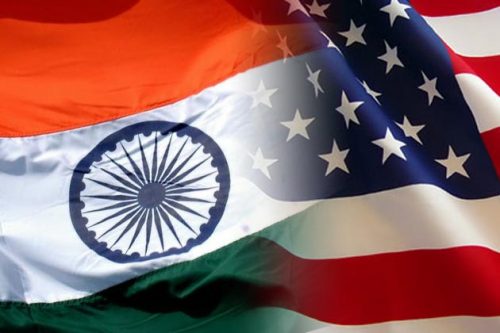
The US seeks quid pro quo for restoring India’s GSP beneficiary status.
By Arun Kumar
There are few signs of a thaw in US-India tariff war with both sides sticking to their guns despite personal interventions by President Donald Trump and Indian Prime Minister Narendra Modi.
Ongoing “big negotiations” with India are clearly taking longer than expected, US Trade Representative Robert Lighthizer told the Senate Finance Committee Thursday.
“They are dogged and insistent on keeping their tariffs and we’re dogged in insisting that we’re going to get a fair deal,” he said. “So, we’re still working on it very much. And hopefully we’ll get to a good outcome,”
“We have a big negotiation with India which I’m sure you’re aware of and potentially even moving to an FTA (Free Trade Agreement) at some point if we can ever make any headway, and that’s Asia.”
“We have a lot of ongoing discussions. We call them TIFAs, trade and investment discussion forums or negotiating forums with most of the countries throughout that area,” Lighthizer said.
Trump Administration’s top trade official said the US was mulling restoring India’s preferential trade status under its Generalized System of Preferences (GSP) that was terminated in June 2019 for failing to assure “equitable and reasonable access” to Indian markets.
However, it was waiting for “an adequate counterbalancing proposal” from India, which was the largest beneficiary of the GSP program in 2017 with $5.7 billion in imports to the US given duty-free status.
“We’re in negotiations with India, we took away their GSP, and we’re in the process of restoring it if we can get an adequate counterbalancing proposal from them,” Lighthizer told lawmakers.
“Till now, we haven’t done that. But this is something that we’re actually actively negotiating right now,” Lighthizer said, responding to a question from Senator Maria Cantwell from the Washington State.
The US trade official assured lawmakers that the US was negotiating with India for removal of its high tariffs “on pulses and on just about everything else,” but lamented “there’s nothing that the US can do about that” thanks to India’s World Trade Organization (WTO) status as a developing country.
RELATED: India trade deal eludes Trump; $3 billion defense pact inked (February 25, 2020)
“The MFN tariffs that India has are extremely high on pulses and on just about everything else,” Lighthizer said. “One of the indictments I have of the WTO is the fact that we find ourselves in this position.”
“When India joined the GATT, then the GATT, in like 1948, they had a GDP of maybe $250 billion,” he said. “Now they’re almost $3 trillion and they still have a third of their lines of tariffs not bound at all and a whole bunch of them bound at 100 percent.”
“And there’s nothing that the US can do about that,” he told the senators wondering, “How do we change that?”
“The notion that we’re locked into a WTO that says just forever you’re stuck with that imbalance is, to me, crazy. And we have to do something about it,” he said.
“We, of course, agree with you and we agree that — that their regular tariffs are bad, their retaliatory tariffs are even worse,” Lighthizer told Cantwell who had expressed concern over India’s “70 percent tariff on apples, so obviously a big product” in her State of Washington.
RELATED: A trade deal is needed to strengthen U.S.-India strategic ties (February 24, 2020)
Senator Steve Daines from Montana too expressed concern over high import tariffs on pulses by India, which is the largest consumer of pulses and an important market for Montana farmers. “Unfortunately, US pulses face high tariffs and an unfair playing field in India,” he said.
Before Trump’s India visit in February, Daines and Senator Kevin Cramer from North Dakota had submitted a letter to the President urging him to prioritize the issue and raise it directly with Modi.
“In fact, I was pleased to see the president, President Trump, hand deliver that letter to Prime Minister Modi,” he said. “In fact, he sent a picture back handing that specific letter to the prime minister and wanted to make sure that we saw it.”
READ ALSO:
US-India bilateral meeting on April 11 to settle trade disputes (April 6, 2018)
Trump should tone down his rhetoric on trade, otherwise world will call his bluff (April 9, 2018)
US-China trade war will hurt India: Gita Gopinath (March 26, 2018)
Tastes like chicken: how a trade war affected US economy in the past (July 13, 2018)



